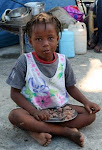Some suggestion has been made to this Inquiry that Mefloquine caused severe side effects, including abnormal and violent behaviour, among some Canadian Forces (CF) personnel in Somalia. We were not able to explore fully the possible impact of Mefloquine. This would have required additional hearings dedicated specifically to the issue, which time did not permit. However, we report here our general findings about Mefloquine and its possible impact on operations in Somalia.
It is clear that Mefloquine caused some minor problems in Somalia, as might be expected from a review of the medical literature. We learned of several incidents of gastro-intestinal upset, vivid dreams, nightmares referred to by soldiers as “meflomares,” and inability to sleep following the use of this drug. Side effects - or at least the minor side effects, and possibly also the major side effects - appeared to be most pronounced in the 24 to 48 hours after taking Mefloquine.
If Mefloquine did in fact cause or contribute to some of the misbehaviour that is the subject of this Inquiry, CF personnel who were influenced by the drug might be partly or totally excused for their behaviour. However, for reasons described more fully in Chapter 41, we are not able to reach a final conclusion on this issue. We can offer only general observations about the decision to prescribe Mefloquine for personnel deployed to Somalia:
The decision of the Department of National Defence (DND) in 1992 to prescribe Mefloquine for CF personnel deployed to Somalia appears to be consistent with the medical practice at the time. This view is based on medical literature from that time suggesting that Mefloquine was an appropriate anti-malarial drug for troops in Somalia and that severe neuropsychiatric symptoms were rare - in the order of one in 10,000 to one in 13,000. U.S. troops also used Mefloquine, although in a weaker form. We cannot say, however, whether DND took adequate precautions to ensure that persons susceptible to severe psychiatric disorders did not receive Mefloquine, since even in 1992 it was known that Mefloquine should not be prescribed to such individuals.
At the time of the deployment, there seems to have been no strong evidence that Mefloquine might interact with alcohol to produce or increase the risk of abnormal behaviour or to magnify such behaviour. The possible adverse effects of mixing alcohol with Mefloquine were analyzed in detail in the medical literature only after the Somalia deployment. DND, therefore, cannot be faulted for failing to relate the consumption of alcohol to the use of Mefloquine.
More recent medical information suggests that severe adverse effects from Mefloquine used as a prophylactic are not as rare as first thought, but views on this point conflict, and further investigation may be necessary.
Mefloquine use could have been a factor in the abnormal behaviour of some troops in Somalia. However, one cannot begin to determine whether Mefloquine contributed to the behaviour of the individuals in question without answers to the following questions:
1. Did the members in question use Mefloquine?
2. Did any of the members in question receive a more powerful 'treatment' dose of Mefloquine? This would happen only if they had contracted malaria. The more powerful treatment doses were known even at the time of the Somalia deployment to carry a greater risk of neuropsychiatric disorders than the weaker dose that most troops received to prevent malaria.
3. Did any of the members in question have a history of psychiatric disorders that could increase the risk of severe side effects from Mefloquine?
4. What day of the week did they take Mefloquine? What day or days of the week did their misbehaviour occur?
5. Did they complain at any point about any symptoms, mild or severe, that are now known to be associated with Mefloquine?
6. Did anyone notice abnormal behaviour by the members in question in the few days after the latter consumed Mefloquine? If so, what was the behaviour?
7. Is it reasonable to say that Mefloquine was or may have been a cause? Might some other factor instead have caused or contributed to the behaviour (alcohol consumption, racist attitudes, generally belligerent or aggressive nature of the individual, stressful environment, official tolerance of extreme behaviour)?
It is evident that further investigation is warranted before any firm conclusions about the role of Mefloquine can be drawn.
© Minister of Public Works and Government Services Canada 1997



No comments:
Post a Comment